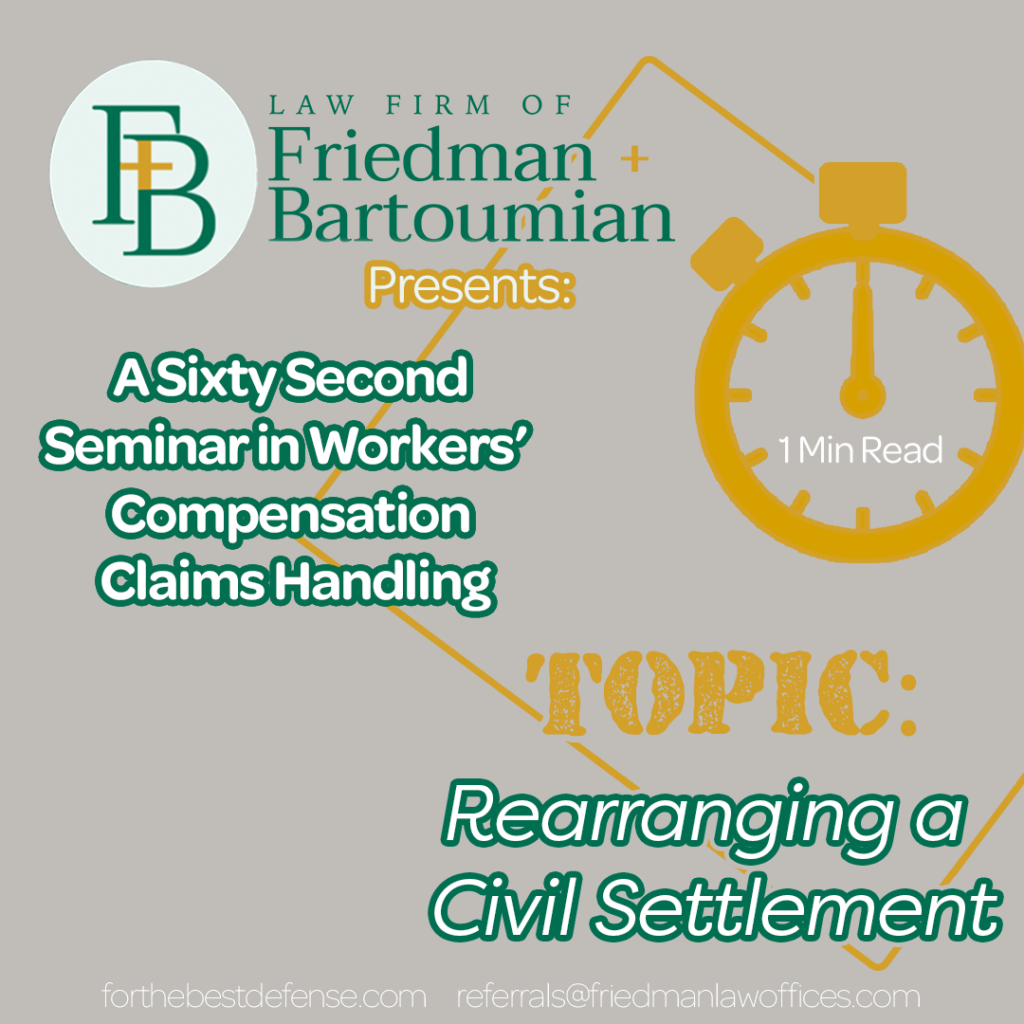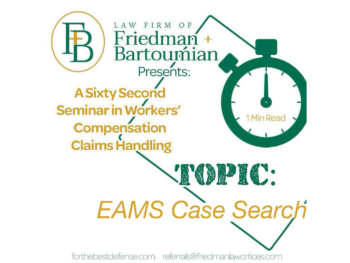
Whenever an injured worker’s third-party tort claim settles out of court, it is common for the injured worker and the civil defendant to join forces in a mutual attempt to defeat all workers’ compensation liens and credit rights. Some of the tactics used are ingenious. One such tactic is to classify the entire settlement as compensation for “pain and suffering,” which theoretically entirely defeats an employer’s right to credit in the comp case. Another strategy (more thoroughly discussed below) is to issue the entire third-party settlement to the spouse for “loss of consortium.” Our blog today is intended to provide guidance to our readers on how to overcome questionable third-party settlements that wreak havoc on employers.
In Bailey v. Reliance Insurance Company, (2000) 65 CCC 375, the employee’s third-party settlement was paid to the injured worker’s spouse for loss of consortium. In the workers’ comp matter, the employee’s attorney argued that because the worker did not realize a monetary recovery in the civil case, there were no sums for the employer to claim credit against. The California Court of Appeal saw right through this tactic. They remanded the case back to the WCAB with instructions to rearrange and redistribute the proceeds of the civil settlement to enable the employer to successfully assert their Labor Code 3861 credit rights. This same legal premise also holds true if the settlement was purportedly paid for “pain and suffering” only. Furthermore, the appellate court commented, “The WCJ and the WCAB will be able to examine the entire circumstances surrounding the settlement, including the potential effect on future workers’ compensation benefits, and render a meaningful decision on proper allocation.”
Therefore, whenever an applicant’s attorney argues there is no entitlement to credit rights because the civil settlement was paid exclusively for “pain and suffering” or issued to the spouse for loss of consortium, or for any other highly imaginative reason, the employer may still seek credit by asking the judge to rearrange and redistribute the settlement. As discussed, per the Bailey decision, the appeals board has the legal authority to rearrange a questionable civil settlement to allow an employer to assert their credit rights.
Further, should an applicant’s attorney refuse to divulge information about a third-party settlement, citing to a non-disclosure agreement, such tactic will likewise fail. See Swanson v. WCAB, (1994) 59 CCC 806 (writ denied), wherein the appeals board ruled they have the right to inquire into the terms of a civil settlement for credit purposes, notwithstanding the prohibitive language contained in a non-disclosure agreement.


 Replacing the QME: A Sixty-Second Seminar in Workers’ Compensation Claims Handling
Replacing the QME: A Sixty-Second Seminar in Workers’ Compensation Claims Handling
Leave a Reply